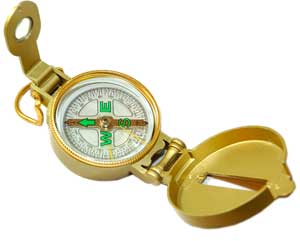Why People Seek Counselling & Psychotherapy In London

Different People Seek Therapy For Different Reasons Being seen, heard, better understood from someone independent without a vested interest may be important for us, alongside needing some sort of external reality check, and to address certain issues, find solutions, receive feedback. Maybe at a turning point in life, or following a recent wake-up call, we may seek counselling in London to address a disconnect between who we are and who we want to be. We may have a current, ongoing problem, maybe going through some rocky moments and be seeking guidance, different perspectives or structures - ones which work for us in life, alongside wanting a stronger sense of inner safety, self-trust, self-worth. We may want to resolve or transcend conflicts in our life. Others may want to feel more secure in ourself, internally calm with peace of mind (especially if we scare ourselves or have obsessive thoughts). We may be seeking ways to overcome a particular phase in our life or want to find out what's going on for us, piece some things together, make sense of things, maybe process, express, offload, say what's on our mind, utilising therapy as a sounding board. Muddling through or running away from things may no longer be enough. Troubled, things may have been gnawing away at us for long enough, can no longer be brushed under the carpet and we may no longer want to push away things that we'd rather not want to think about (maybe some of our demons, shadow side), which we want to address. Maybe at a crossroads in life we may be torn by a dilemma, struggle to choose, make a decision, or have a familiar problem that holds us back, weighs us down, which can't be unburdened, patched up or where "getting on with it" is not enough. We may have tried things and want to move on, yet nothing works, and we end up back in a similar place. Functioning well on the surface, we may fit in, yet not feel part of things or fully involved, be unhappy, disconnected, alienated or lonely inside, discontented or unfulfilled, and therefore be seeking therapy to explore under the surface what's happening for us. Going through the motions, something might be missing or stirring, and we may struggle to put our finger on what it is. Some themes people seek therapy include the need to face certain challenges, maybe gaining various tools to overcome obstacles in our life, find our way forward, be strong in our self, journeying to a better place in our life, feel better about ourself, maybe become more resilient. We may be experiencing a challenging period of our life, be going through a difficult time, turmoil, point of crisis, or seek a reset in our life. We may come across some familiar cycles, ingrained, entrenched patterns, stumbling blocks, which don't seem to go away or continue to consume us, as if things may go round in a loop. We may wonder why we do what we do, want to overcome, manage challenges in healthy or better ways. We may have let some things slide, and they may have come to a head or something may not be working, and we may want to understand ourself more (maybe why we are the way we are), our feelings, emotions, be more comfortable in our own skin, especially if we feel overwhelmed by feelings or thoughts. Wondering what we want, who we really are, unsettled or uncomfortable, we may be in the grip of powerful feelings or thoughts (some of which may seem irrational) and want to utilise the therapy to understand, overcome them. Others may seek counselling for mood swings and to navigate our way better through life in one way or another. We may experience a suffering inside, which needs to be aired, shared. Others may want to be more loving, emotionally different. Some of us may have closed-off, boxed-off our feelings and seek counselling to overcome this. Something may be holding us back - maybe to be open emotionally (or to know when to contain our feelings, so they don't spill out). We may seek therapy to talk about difficult things, invest in ourself, utilise the therapy to grow. Something may be holding us back and we may feel a little lost, stuck and be seeking a life compass, to get us back on track, in the way we need, so we can take time to gather our thoughts, be in a better head space. We may want change, to transform our life, evolve as a person, yet fear it. The therapy can be a space to reflect, explore how we think, clarify strengthen our thoughts, beliefs (especially if we don't feel good enough, or like an impostor. We may question or want a better grasp of who we are, understand who we are, what we are doing, where we are going, which may be more of an existential nature). Wanting to make room for what matters in our life, we may be seeking new directions, purpose in our life. Inside it may be as if we are living half a life, longing or yearning for something - maybe connecting to something more meaningful in our life. Therapy isn't just for personal issues - it can also be about the impact of world events (see also Global Crisis Anxiety).
Your conflicts, all the difficult things, the problematic situations in your life are not chance or haphazard. They are actually yours. They are specifically yours, designed specifically for you by a part of you that loves you more than anything else. The part of you that loves you more than anything else has created roadblocks to lead you to yourself. You are not going in the right direction unless there is something pricking you in the side, telling you, "Look here! This way!" That part of you loves you so much that it doesn’t want you to lose the chance. It will go to extreme measures to wake you up, it will make you suffer greatly if you don’t listen. What else can it do? That is its purpose.A.H.Almaas

What May Be Happening Inside Our life on the outside may be going well in some respects. Yet something inside may not feel right - not how we want it to be, though we can't quite put our finger on it. We may want to rewire the way we think. Others may struggle to develop our inner life and want to feel comfortable in our own skin, identity. Wanting to feel less anxious, we may be seeking more harmony in our life, connect with our light-heartedness, have peace of mind, calmness, or to be more at ease, content, in touch with who we are more. We may be successful on the outside, yet things may be difficult inside. Certain things may just not sit right for us and we may have a realisation that our life is not fully working for us. We may feel bored, trapped inside or empty, as if being on "auto-pilot", which may be linked to our blind spots. We may feel frustrated or under pressure about something important. Sometimes things can become too much for us. We may no longer want to ignore a difficulty or struggle with an unavoidable phase of our life or relationship. We may seek courage to try new things and ways to overcome our fears, or loosen any layers of protection. Some of us may struggle with putting the handbrakes on, whereas others may want to loosen them. We can sometimes be enclosed in our own bubble world or hide behind our wall - a wall of protection, which may have been set up when younger to protect us from our wounds. Also, we may have a whole backstory to tell. Not fully thriving, some may feel like an outsider, blocked, stuck or lost, treading water, maybe confused, wanting our own anchor. At times it may feel like we are broken, as if in pieces, need mending. Balance, stability, being in our own ground maybe important (see also Emotional Resilience, Emotional Strength, Emotional Stability & Being Powerful). Spending much time in our head, struggling to switch off, or consistently worrying, it can be as if certain things are embedded in us and we want to entangle them - others may report that their "inner demons" or out of control feelings are dominant and want to have an underlying understanding of where our feelings are coming from and changing our relationship to some things - even if the thing itself don't change may ironically change things.

Unease Experiencing conflict between our heart and head overwhelmed by feelings or by thoughts, we may want to express, manage our feelings, thoughts differently, trust who we are, be more in tune with our authentic feelings. We may also want to be aware of our triggers and change how we behave, or be less driven by obligation. Uneasy, things may not be falling into place (some may question what is "normal"). A part of our life may be messy, chaotic and we want to feel more in control, more prepared or equipped to respond to the roller-coaster of life's ups and downs, feel relaxed, stable, secure or want to let go of certain things. We may want to be settled, or to move on. We may want to understand how we might contribute to any difficulties - the obstacles we put in the way, and seek counselling help in overcoming them. We may want to take stock or do some soul searching, or have questions like "Why am I like I am?", "Why do I do what I do?" "What do I personally create?" We may be seeking counselling for coping mechanisms (e.g. to reduce or tolerate any anxiety, tension or inner pain), resilience, resources, different tools, frameworks or healthy ways to relieve pressures. We may fear exposing our "real" nature out in the world, yet at the same time want to, and the counselling can work at our own pace with this. We may also want to revisit things from our past that we thought we had dealt with. We may be carrying unexpressed pain or grief for something or someone (see Releasing Ourselves & Letting Go). Sometimes our unease may also include unease of an existential nature - how we navigate our way through life.

Being Heard In normal social situations it is unacceptable to express all our feelings, unravel things and tell everyone everything. Even with people we trust, our closest friends or family, limits are usually set in what we say, and they may find it hard to give objective advice. What people are prepared to hear may also limit our expression. We may restrain what we disclose or fear the response yet need to talk openly about things. We may want to explore, talk about how we really feel and feel listened to, find some answers, value the anonymity, professional feedback and help of a counsellor or psychotherapist as someone independent to turn to, not directly connected, who isn't too close, can hear us, mirror us back, is alongside us without a vested interest, preconceptions, who doesn't say things to simply please you. Therapy offers us the opportunity to share our inner world, tell our story which gives our life colour, get things off our chest so we can be heard and listened to and know we are not alone, for someone to bear witness to us. It can be a space to talk about what we need to talk about, say some things out loud, speak the unspoken and express our thoughts, however they may sound.
Supportive Resource, Routine, Structure Some of us can be too proud or ashamed to ask for professional help, fearing that if we do, something is "wrong" with us. Yet receiving a different response to what is our usual experience can also be significant. Many people value the regular structure and routine of talking to someone as helpful, viewing counselling and psychotherapy as a regular supportive resource, with someone they can turn to, just as acceptable as maintaining our diet and physical health. Others seek counselling support as a mentoring resource.
Change Some of us may find it too painful to talk to anyone else about our fears, pain or suffering, which can sometimes be almost unbearable. We may feel unable to solve our struggles and need help overcoming them. We can't do everything on our own and it can dawn on us that waiting for personal change can go on forever, even in our relationship.
Confusion We may simply seek counselling or psychotherapy to unravel things or to be less confused, wanting to make sense of life, make certain connections or be more comfortable, in touch with ourself, with a sense of wellbeing.

Making Sense Some may experience our life being like a jigsaw, and we may want to make sense of what the whole picture might look like, including any redundant, new, missing, unknown pieces. (See also Role Of The Unconscious - "The Yet To Be Revealed")
seeking counselling, seeking psychotherapy, seeking therapy in London

New Chapter Tired of waiting or fighting against the tide, we may now want to reconcile important things that matter in our life. In a time of personal transition, transformation, some people come to therapy wanting to begin a new chapter in our life or be a better person to our self and others, enjoy life more. We may have put things that eat away at us, at the back of our mind - "on the back burner", recognising that now is the time to do something about this, especially if we don't feel on the right path in life, so we can establish a clearer path from where we are towards where we want to be. (See also Our Own Path Of Development)
Specific Issues Some people may want to address very specific issues, seeking tools in how to respond to setbacks, challenges, yet often there also may be underlying considerations, a backstory.

Non-Specific Issues We all have fragile bits of our psyche. We may be troubled by aspects of our life, relationships. Some people may want to handle general problems, maybe managing a current phase in life, wanting to balance things out, wanting to overcome or manage uncomfortable feelings, examine why we are driven by certain things, or to change certain Self-beliefs & Believing In Ourself. Other people may have vague, non-specific or indefinable issues, underlying symptoms, which may emerge over time. We may have a sense of something inside floating around, and want to look at this. We may for example struggle in taking risks or simply need to evaluate or change something important, which may point to what is transforming in our lives (see also Life Purpose, Emerging Purpose, Dreams - Our Personal Perspective). We may have fallen into a job, relationship or lifestyle, which we are now questioning. We can be confident, fulfilled, creative or in control in some areas (e.g. work) yet not in others (e.g. relationships). Aspects of our life may no longer fit, or sit well with us. We can discover that we are at a place in our life, that we don't want to be. Lost or stuck, we may want to be freer, less trapped, and avoid storing up deeper problems in the future. We may be embarrassed or ashamed about aspects of our character. We may have been existing as if in cocoon. We may experience emptiness inside or have a sense of longing or need to belong, which we can't quite define. We may turn to unhelpful habits or addictive behaviour. Some of us may also want to reconcile our lives, accepting who we are and where we are at. Non-specific issues may also include:
- Ingrained, entrenched patterns in our life
- Changes, crises, emotional problems, confusions or dilemmas or maybe a sense of alienation.
- Feeling restless, being so busy in life, juggling with all the different balls, yet unsure which ones to let go, or where would they land
- Being balanced, competent, in control, satisfied, creative or successful out in the world, yet feeling differently inside
- Echoes from our childhood
- Old trauma
- Lost, stuck, feeling unsettled unsure why
- Taking care of our own needs
- Being in touch with what is important for us
- Existential & life meaning concerns
- Life direction, life purpose
Changing Our Ingrained, Entrenched Patterns We may be seeking different ways of releasing, managing or changing our entrenched, ingrained life patterns, cycles. We experience events - the stimulus (e.g.: an unavoidable conflict, making a difficult decision, work pressure, loss of independence or control, etc.). We then have thoughts & beliefs about this, which in turn may trigger confusion or feelings like stress, fear, anxiety, frustration, anger, depression, etc. Our response may be to block out some uncomfortable, unwanted feelings by punishing others, self-damaging sabotaging, or procrastinating, running away from problems, withdrawing, moodiness, doing things in excess (e.g.: drinking, working, overusing the computer - see also Unwanted Habits & Addictions Counselling London), etc. or simply getting stuck. The counselling & psychotherapy may address other possible responses, what's counter-productive, what supports us. (See also Patterns In Our Life)
Coming To Terms With A Part Of Ourself We've all had the experience of catching ourseIf by surprise "That's not me, or supposed to be me" we might say, when we aren't aware of what we are doing. Our actions, words, thoughts and emotions - ones "we weren't supposed to have" - can seem to arise from nowhere, yet they are in us. (An example could be when we are driving in our car, we take on a totally different persona, than the one not behind the wheel, our character changes.) Sometimes it can be hard to reconcile aspects of us which don't fit our image. Some of us can have a tendency to "cut off" a part of our lives, repressing or denying aspects of our character we find hard to accept (see also Self-Identity & Personality - Counselling London). As we integrate these parts of us, we may have more of a sense of equilibrium. (See also Life's Journey, Initiations - Connecting To Our Own Inner Journey, Direction & Creating Our Own Destiny)
Beauty is truth – truth beauty – that is all ye know on earth and all ye need to know.John Keats
Our Home Truths We have all at times tried to convince ourself of something (especially from our wounded self), that we know deep down is not true in order to avoid some uncomfortable home truths (see also Our View Of "Reality", "Facts", "Statistics", "Numbers"). And truth is frequently subjective. Going beyond our programmed mind (balancing our mind with our heart) towards the experience of (and guidance from) our higher sense of self, may help us be more aligned to our home truths. There can be a difference between knowing things and our truth. Being willing to learn and hear truth may challenge us. This may entail embracing our shadow, dark side (as Agamemnon marks "That we must suffer, suffer into truth"). Listening to our senses, distinguishing the differences between our intuition, gut feelings, hunches and instinct may support us. Our personal power lies in our truths, which may also take our willingness to go through our pain, face our fears. We can be so used to playing roles in the world, we neglect our sense of who we really are, our conscience and personal integrity, connecting to our own wisdom, innateness, vulnerability, allow for uncertainty. As we evolve, trusting our own innateness, our partner and being truthful in our relationship may also be important to us, as may listening to our inner voice, speaking our truth (see also Difficulties Being In Touch With & Asking For What We Need In A Relationship, How To Know, Name & Respect Our Needs - Speaking Up For Ourselves & Letting Others, Our Partner Know What Works Best For Us) without judgement. Counselling and psychotherapy offers an opportunity to connect more to our real and authentic self, as we discover and accept all of who we are, acknowledging our own feelings including our core, existential, life feelings. It was Dori Laub who once said, "One has know one's buried truth in order to be able to live one's life". Standing in our own truth, becoming a safe receptacle for truth, willing to hear truth so we don't have to avoid rejection, may support us. Exploring life's journey, connecting to our own inner direction may be important for some. We may also have existential concerns or sense a spiritual connection to truth, which can be explored in the therapy.
Truth is within ourselves.Robert Browning
Both Suffering & Love Underneath our concerns can be a need to find ways to respond to and manage not only our but the world's inevitable sufferings, to love and be loved, exploring what it means to be human. (For details see Suffering & Love)
Specific Counselling Questions - How Do I Find A Therapist How to find a counsellor, find a psychotherapist - the right one for us - may be a concern. Not only finding a therapist but also finding a psychotherapist we feel comfortable with may be important (see also Integrative Counselling Approach, Philosophy & Therapy Style Of Practice). We may have certain questions, e.g.:
- How do I find a therapist who is suitable for me?
- How to find a psychotherapist in my London area?
- How to find a counsellor who I feel comfortable with?
FAQs about the Counselling London practice based in Kings Cross, Camden:
- What is the frequency of counselling in London, Kings Cross?
- How many counselling in London sessions do I need?
- How much does counselling London cost?
- Must I visit your London counselling practice in Camden or do you offer Skype counselling, online counselling or Telephone counselling?
- What are the advantages and disadvantages of offering online counselling, Skype counselling or in-person counselling in London, Camden, Kings Cross
- Do you only offer counselling in London, Camden or Kings Cross?
- What times do you offer counselling in London, Kings Cross or Camden?
- How do I contact a counsellor in London, Camden, or near Kings Cross?
- How effective is counselling in London, Kings Cross, Camden?
- What can I expect from the initial session of counselling London?
- What to expect from the other counselling London sessions?
- What is the typical duration of the London counselling services in Camden, Kings Cross
... back to Home Counselling in London or Psychotherapy in London
